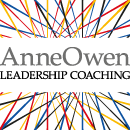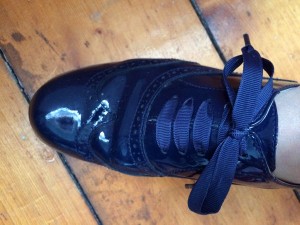Why it can be hard for women to get on in professional services firms.
I’ve been doing some really interesting projects recently with professional service companies, developing women leaders. I’ve really loved the work and it has led me to delve into the subject of unconscious bias. What particularly interests me is the intersection between individual bias and systemic bias, and the consequence for the gender balance at senior levels.
Let me unpack that a little. Individual, unconscious bias is what we all walk around with. We have our own ways of seeing the world based on our past experience and we apply those assumptions all the time, in order to be efficient (we can’t question every assumption we ever make – we’d never get out of bed). Systemic bias is where too many people who share the same unconscious bias have collectively designed systems (eg promotion systems) which make it harder for some groups to get through than others. Even well-designed, transparent promotion systems are contributors to the current unacceptable situation: the lack of women at senior level in most organisations.
Professional services organisations (even when they have become limited or public companies) operate on a partnership basis. Partners are invited into an exclusive circle. To earn that invitation, certain criteria must be fulfilled. In the interests of fairness, many organisations have made those criteria explicit and developed transparent methods of assessment. That’s all good. In a partnership, opening the doors to someone new requires that they can demonstrate their worth: if they are going to be taking a bigger slice of the cake then they need to prove that they can make the cake bigger: otherwise why would they be a desirable partner? It’s a business decision, not an altruistic act.
The problem really starts to arise in the way that assessment happens. Stepping into partnership raises the anxiety levels for everyone, because there is a high level of ambiguity. No-one really knows whether the new partner will ‘make it’. In times of ambiguity, most of us cling to certainties. In the matter of promoting to partnership, what increases certainty and predictability is: track record (did this person bring in more work and do the clients like them), sharing the decision with others (do other people support this person, therefore the risk is genuinely shared) and whether the potential partner can speak with confidence about themselves, and project calm certainty. There is a risk of bias in assessing all these elements, but I particularly want to focus on the last: projecting confidence.
Confidence is often assessed on the basis of a combination of factors. Two fundamentally important factors are non-verbal behavioural impact, and the claiming of successes.
Whilst women can project calm certainty, we generally do not like saying ‘I did this’, with a big loud ‘I’. Women like saying ‘We did this’. And of course this is often totally true. Most work is carried out by a team of people. But claiming ‘I did this’ is what creates the certainty. Head-hunters, mentors, promotions panellists, all want us to say ‘I did this’. I’ve coached many women who have had this feedback, and these words really stick in our throats.
On the non-verbal element, women do not project physical power and take up lots of space: it’s trained out of us. Loud, bossy, noisy girls are given a lot of negative feedback about how much space they take up. (Thank you Emma Watson for pointing this out in her great speech launching HEforShe at the UN.). There’s plenty of evidence about how people are assessed which tells us that masculine styles of physical expressions of confidence get higher ratings. Watch this wonderful Ted Talk by Amy Cuddy on exactly that. Taking up a power pose for just two minutes before you are interviewed increases your testosterone levels and has a major effect on how people assess your performance in an interview. Notice how un-feminine those power poses are.
Do you see the problem? Having worked your socks off proving your worth to get into the panel, it turns into a social influence process when you are in there. The panellists’ experience will generally over-ride the track record evidence, and, if you are female, in order to impress, you have to behave differently, you have to throw off all those behaviours you learned, in order to become socially acceptable. You have to take up more space, be louder, claim successes for yourself and deny your team’s contributions in order to convince the panel that you can continue to do what you have already done for the last x years. It really isn’t easy. We all collude in this process, men and women alike.
I suspect this systemic bias holds true in many fields, but I know most about professional services firms. I’m not going to end with a call for action but I would welcome any thoughts on this.
Here’s a true story about claiming the credit which is both hilarious and sad.
I was sitting around a coffee table with a group of people wearing a pair of lovely, navy blue patent brogues, laced with ribbons. Next to me was a man wearing a pair of scruffy leather trainers. Nice, but really not that special. A woman opposite stared in the direction of our feet and exclaimed ‘What incredibly cool shoes’. Before I could even open my mouth to say ‘Oh, they were really cheap, you can get them in…’, the man beside me glanced down at his own shoes and said ‘Hey, thanks’. And no, he wasn’t joking.



